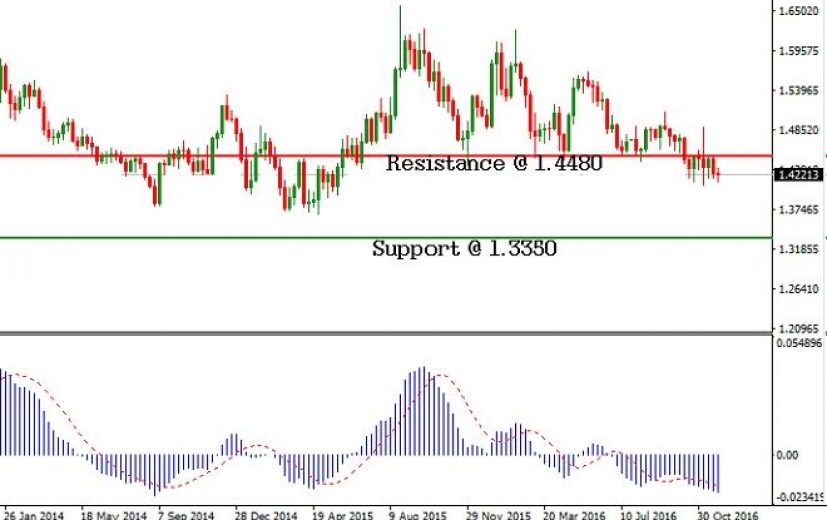 The victory of Trump bolstered the Greenback against other major currencies in an unexpected manner. Not surprisingly, the Euro dollar was one of the main losers. The Euro lost more than 600 pips and touched a low of 1.0518 against the US dollar.
The victory of Trump bolstered the Greenback against other major currencies in an unexpected manner. Not surprisingly, the Euro dollar was one of the main losers. The Euro lost more than 600 pips and touched a low of 1.0518 against the US dollar.
Since then, the Euro has not recovered much against the US dollar. On the contrary, the Australian dollar, which had also declined against the Greenback, has recovered most of the lost ground. Ironically, the EUR/AUD pair remains range bound even as the fundamentals are in favour of a stronger Australian dollar.
The upcoming events in the Euro zone and the developments in China, as discussed underneath, indicate that the Euro dollar may finally begin its downward movement against the Australian dollar.
Financial Times
The ECB President Mario Draghi stated that the prevailing low interest rates have encouraged the investors to take excessive risk. This build-up of debt now threatens to affect the interest sensitive real-estate market in a big manner. Still, Danske Bank’s chief Analyst Allan Von Mehren believes that the ECB would extend the asset purchase program by 6 months. Mehren’s argument stems from the fact that the Euro zone is still facing issues of low inflation and poor wage hikes. In order to boost exports, the ECB would also like to see a cap on the strength of the Euro dollar. This can be accomplished by extending the asset purchase program.
On December 4th , Italy is heading for a referendum to decide whether a constitutional reform is required or not. A ‘Yes’ vote will enable the government to reduce the power of the Senate or upper house of the Parliament. Ultimately, it would enable the government to pass the crucial bills quickly. A ‘No’ vote would strengthen the anti-EU party, such as the Five Star Movement. The situation now looks as if the naysayers would win the referendum. The prospect of anti-EU party rising to prominence is expected to weaken the Euro.
In China, the traders have started to stockpile crucial raw materials such as iron ore and metallurgical coal. If Trump starts focusing on large infrastructure projects, the ‘reflation’ process is expected to further push the price of commodities higher. So, as a precautionary measure, the Chinese traders have begun their raw material purchases.
Iron ore and coking coal are the top two export revenue earners of Australia. Thus, we can anticipate the Euro dollar to weaken against the Australian dollar. The EUR/AUD pair has broken the support at 1.4480. The weekly chart indicates that the next major support for the stock exists at 1.3350. Minor support exists at 1.4080, as per the daily price chart. The negative reading of the MACD indicator reflects weakness in the asset.
So, a currency trader should open a short position in the EUR/AUD pair at 1.4330 levels. As advised always, to have a control over the losses, a stop loss order should be placed above the 1.4530. The short position can be winded when the pair touches a low of 1.3880.
A binary trader can invest in a low option (also referred to as below or put option) to capitalize on the decline of the EUR/AUD pair. The investment should be ideally made when the currency pair trades near 1.4330. A one week expiry period would be enough for the recommended trade.





